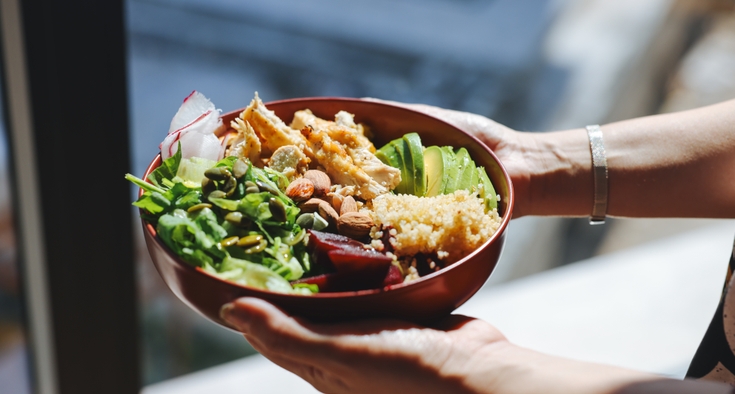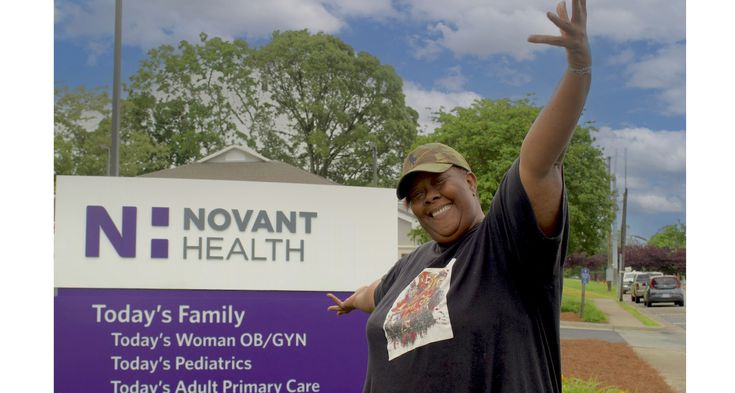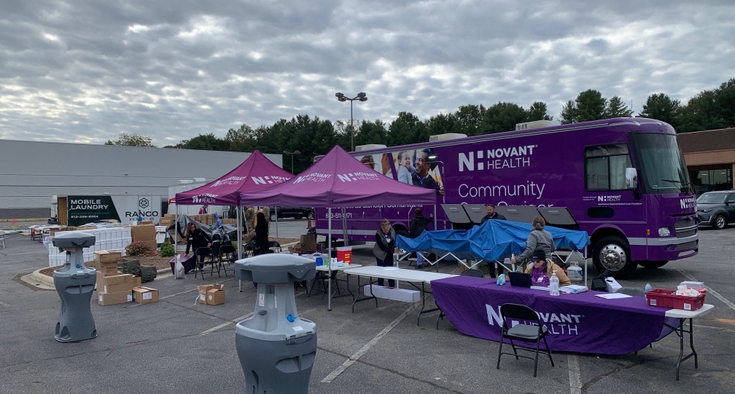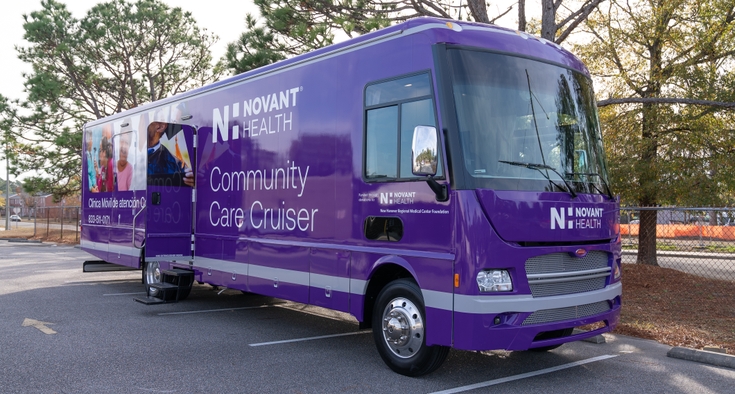Marion Tyson, 69, was trapped. Her medication – for high blood pressure and Type 2 diabetes – had become so expensive she was having to make this choice: medicine or groceries?
It’s a widespread conundrum, especially among seniors. In 2020, 20.7% of people reported taking on debt or declaring bankruptcy due to the cost of their prescription medications, according to a MarketWatch story.
At her last physical, Tyson told her Novant Health doctor that she was struggling to afford her medications – Trulicity to control her slightly elevated A1c and Eliquis, a blood thinner she needs. Each used to cost her $47 a month, but the prices increased to $240.46 (Trulicity) and $146.24 (Eliquis) a month – for a total of nearly $400.
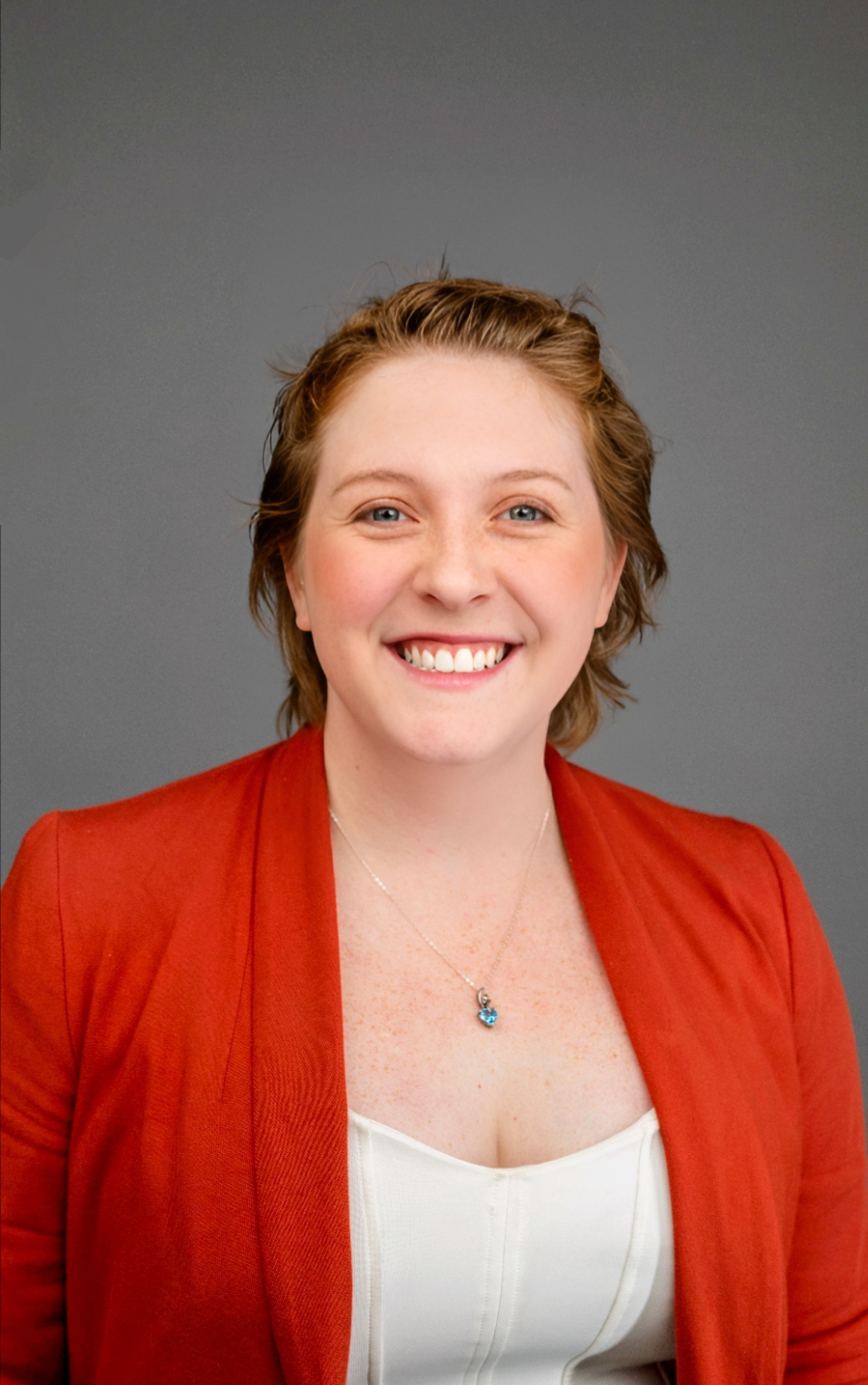
When Tyson reported in a standard clinic survey that she was worried about running out of money to buy food, Novant Health stepped in. “If someone answers yes to (food worries), there’s a team ready to help,” said Katie Mooney, a Novant Health community health worker. The Novant Health Nourishes program offers immediate and longer-term access to healthy foods, and community health workers help patients navigate connections to health and social resources.
Tyson was surprised to hear about a pilot program Novant Health, Novant Health Foundation, Second Harvest Northwest North Carolina, and Humana launched to address food insecurity, one of the social determinants of health – the factors where you live, work and play that impact our health and well-being.
Through a grant from Humana, Novant Health provided Medically Tailored Meals (MTM) to 167 Forsyth County patients who are 65 or older and have been diagnosed with diabetes or hypertension and are food insecure but not receiving Meals on Wheels benefits.
MTMs are tailored to be supportive of patients with diabetes, hypertension or both. They’re crafted with health impact, and delicious taste in mind. Program participants received 15 free meals a week for 12 weeks, made and delivered to their door by Second Harvest Food Bank of Northwest North Carolina.
“The program is designed to show patients how what we eat can affect our health outcomes,” said Mooney.
It’s all part of Novant Health’s commitment to improving the health of all the communities it serves, and that includes addressing food insecurity, said Dr. Chere Gregory, senior vice president and chief health equity officer at Novant Health.
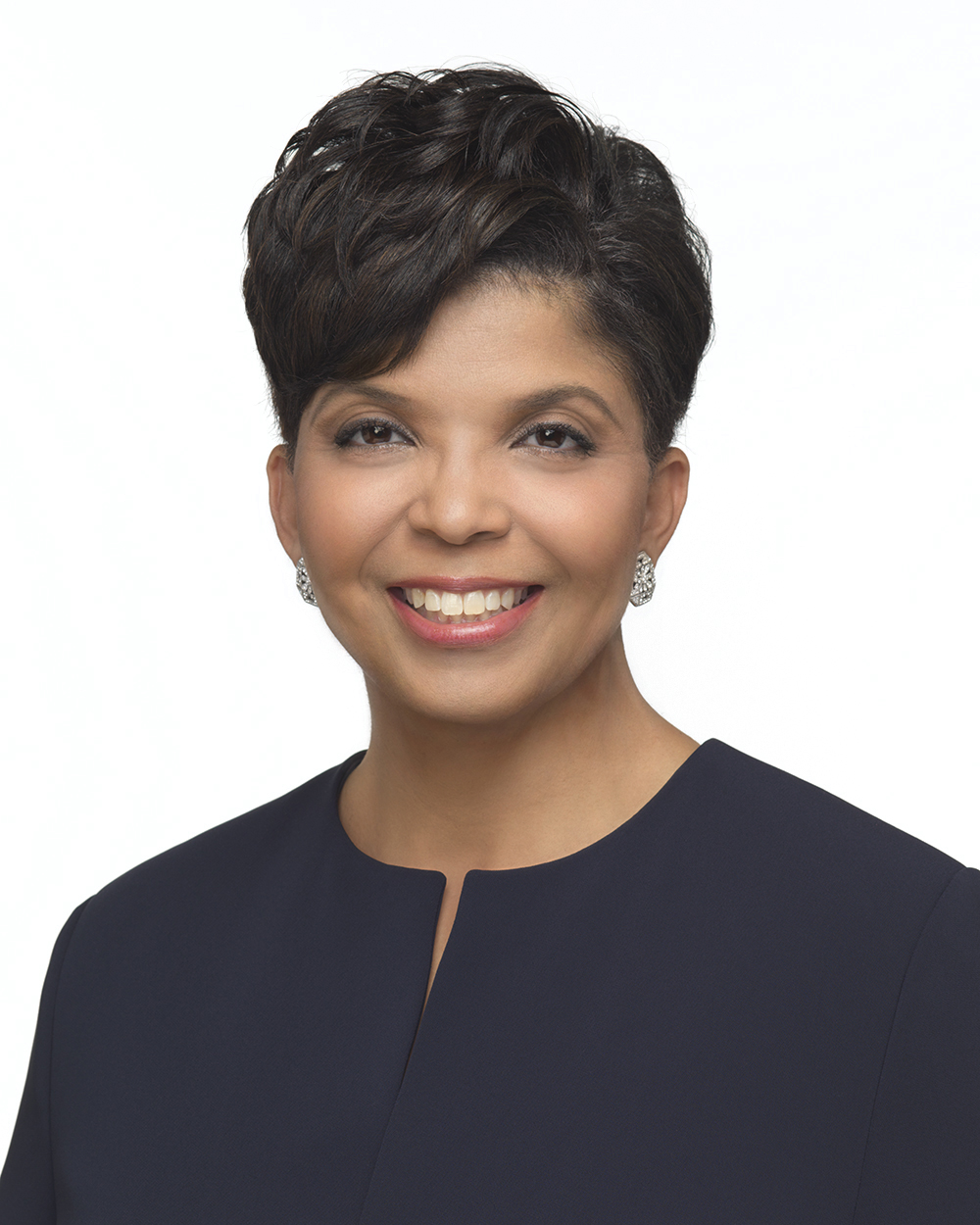
“This undertaking actually gives seniors the opportunity to have a new start with nutritious food and also address their chronic diseases and hopefully give them the opportunity to live their best lives and attain the highest level of wellness possible,” Gregory said. And the early signs are encouraging, she said. “Under this program, we are beginning to see our patients come back to the primary care doctors more often. They say it is decreasing their anxiety and they're sharing with us that they feel less depressed, and we're starting to monitor those health outcomes that we know are critically connected to being food-secure.”
The expense of a healthy diet

Lauren Carmichael, Tyson’s community health worker, sees the groceries-or-medicine dilemma a lot. “When you’re paying for housing, utilities and transportation on a limited income, a lot of people have little to no money left to spend on food, let alone medication," she said. "It’s a really unfair decision.”
Financial hardship can happen suddenly. For Tyson, her husband’s death in 2013 left her grieving and in financial straits. “When I suddenly became a one-income household,” she said, “it really set me back.”
When you’re just trying to make ends meet, healthy eating isn’t your biggest concern. Now retired, Tyson gets a little too much from Social Security to qualify for government aid programs – a challenge referred to as the benefits cliff. Many seniors in the program who do receive government aid referenced receiving less than $30 a month in grocery support.
“I'm not one to ask for something if I can make it without,” Tyson said. “But you never know the answer unless you ask. Don’t not apply because you think you won’t qualify.”
Food is love
Of all the resources Mooney connects her patients to, food may be the most meaningful. She serves on Novant Health’s Food and Nutrition Sustainability Green Team.
Best doctors. Amazing nurses. Remarkable care.
Read more here about how Novant Health is caring for the communities it serves.
“As a kid, I lived in a small rural community in Alabama, and we knew that, toward the end of a month, some of our neighbors may not have enough. If my mom – who’s a chef – made a big meal, we’d share it. Ever since I was a kid, if you tell me you’re hungry, I’m going to say, ‘Let’s get you something to eat.’”
That’s the prevailing wisdom at Novant Health, too. If patients reveal at an office visit they’re unsure if they have enough food for the day, they may be offered an emergency food box through the Novant Health Nourishes program. “They’ll also get connected to a food pantry and a referral to a community health worker,” Mooney said.
To participate in the MTM program, patients need a way to keep meals frozen or refrigerated until use and access to a microwave or oven. Each MTM box contains a mix of breakfast, lunch and dinner meals.
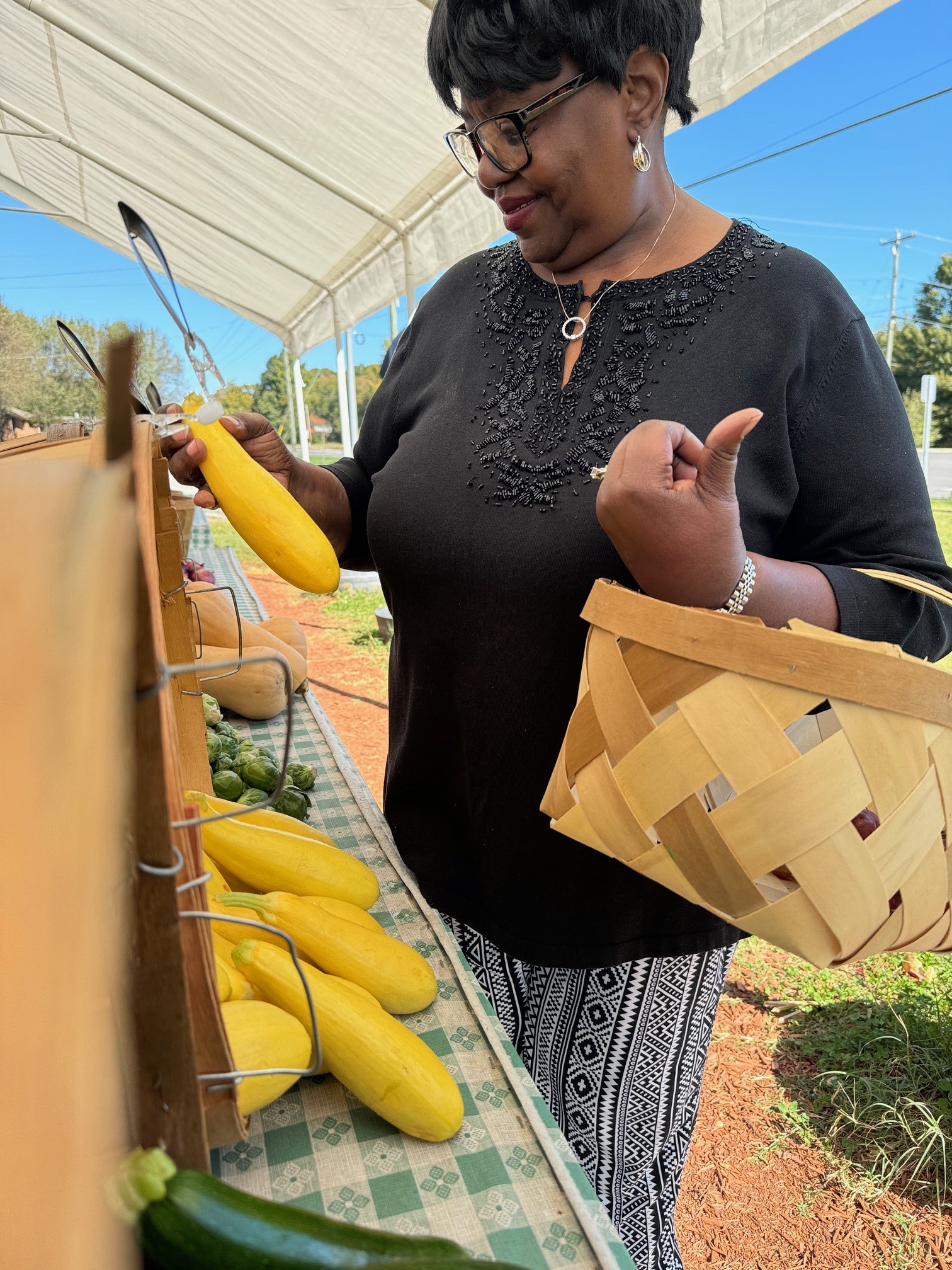
Tyson loved the entire program but admits to having a few favorites. Turkey sausage, stewed apples and oatmeal was her favorite breakfast. Salmon with asparagus and mashed potatoes and navy beans were all-star dinners. Even one of the chicken entrees was beyond ordinary. “I’d never had chicken prepared this way,” she said. “It was served with fennel, which I’d never even seen.
“Everything is freshly prepared,” Tyson added. “These aren’t like frozen dinners you see at the grocery store that have loads of sodium and are highly processed.”
Besides being tasty and nutritious, the meals are easy to prepare. And filling. “They truly made me feel full,” she said. “And the program taught me about correct portion sizes. Even though I never felt hungry during those 12 weeks, I still lost weight.”
She lost 12 pounds and has been maintaining her new weight.
Caring for our community
Carmichael, the Davidson County-based community health worker, follows up with patients during and after the program to see how they’re doing and helps make connections to resources for other social determinants of health.
“There are a lot of patient assistance programs for medications,” she said. “So, I'll research programs and try to find substantial savings. We’re here to help patients navigate the system.”
Mooney, the Forsyth County-based community health worker who also supports some patients in Davie and Davidson counties, also understands the need from her own rural upbringing.
“I meet people where they are and connect them to whatever they need to thrive,” she said.
For community health workers, “home visits” aren’t always to a dwelling. “I tell people that what we call a ‘home visit’ can be wherever you want it to be,” Mooney said. “A lot of my patients don’t necessarily know where they’ll sleep at night. I've met people at the bus station, in their cars, at McDonald’s and at one of my favorites – the public library.”
A happy outcome
Tyson said the MTM program brought new appeal to eating healthy: “Every Tuesday when those meals would come, it felt like Christmas.”
Her healthy outlook was a long time coming. “It took me about a year after my husband’s death to realize: I’m still here,” she said. “I have so many things I want to do. I decided not to give into ‘Woe is me.’ My grandkids helped me get back on track.”
She proves it’s never too late to pick up a new habit – including healthy eating. “I’m 69 now,” she said. “I should’ve been eating like this for years. This meal program was a real eye-opener.”
The inequity of food insecurity
At Novant Health, addressing food insecurity among patients and communities it serves is a key priority.
Food insecurity is associated with increased risks of birth defects, diabetes, anemia, hypertension, oral health problems, poor sleep, anxiety, depression and even thoughts of suicide. It also disproportionately impacts women, children, people of color and LGBTQ+ individuals.
Identifying patient groups with disproportionate levels of food insecurity and disparate outcomes in diabetes and hypertension informed the patient populations participating in this program.
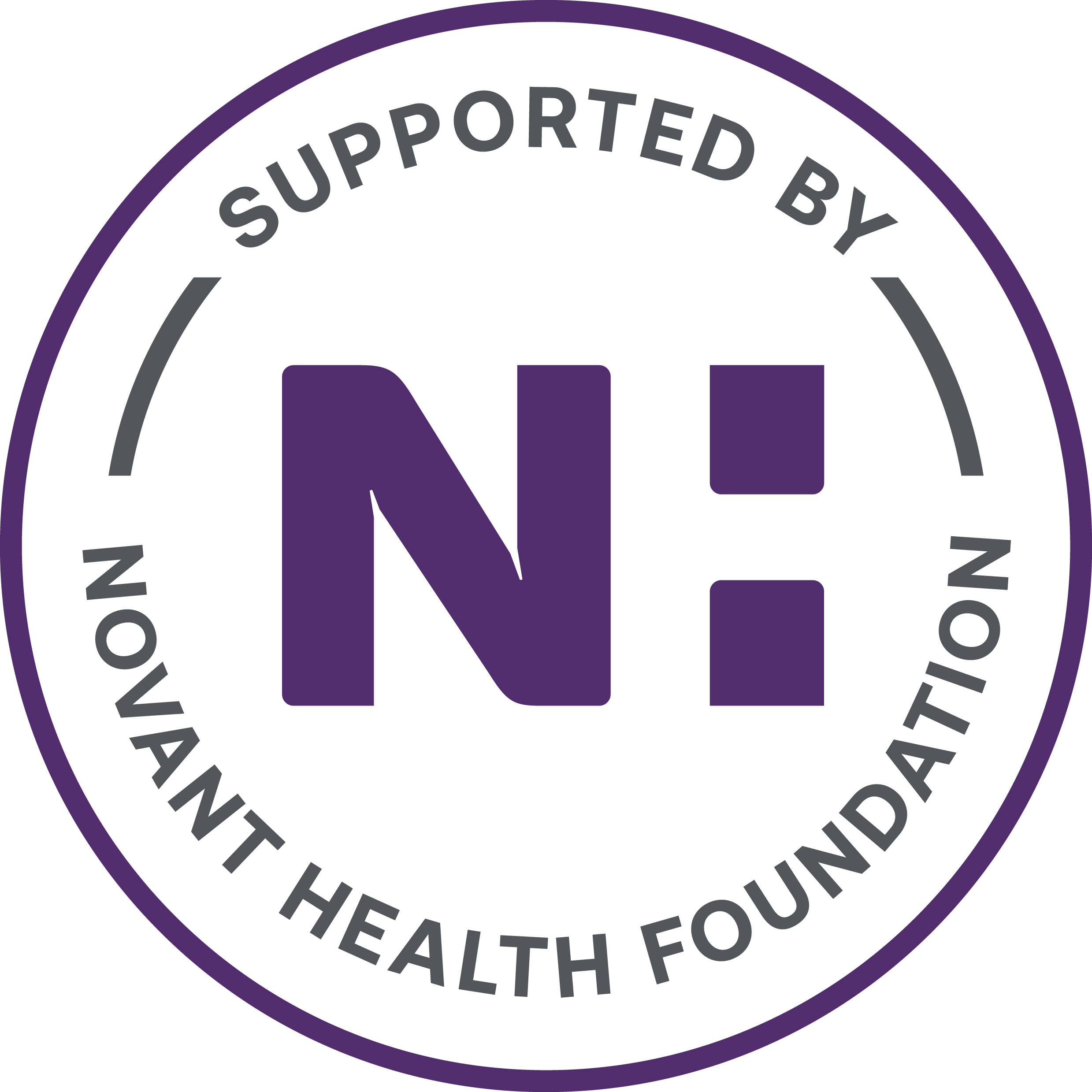
This program was made possible by support from Novant Health Foundation.
The collective generosity of meaningful giving allows Novant Health to care for more patients across our footprint, provide new equipment, support team member development and assist community members.
If you’d like to join us in making a difference, visit SupportNovantHealth.org/Give-Where-You-Live to learn more.





